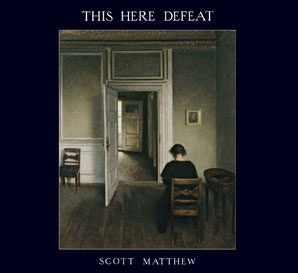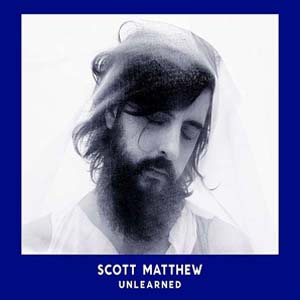|
Warenkorb / Shopping Cart:
Artikel 0,00 €      |

|
|
Suche / Search
|
|
STOPPOK |
|
VORVERKAUF |
|
# |
|
# |
|
|
|
Keep an eye on...
DAMAGED GOODS |
|
ON THE DEcKS |
|
ON THE DECKS |
|
OBS 28 |
|
WIEDER DA! |
|
|
|
----- |
|
SUPER SAMPLER |
|
50s/60s R'n'B |
|
|
|
|
|
GESCHENK |
|
|
|
|
|
|
|
|
|
|

|
|
||||||||||||||||
Wie Liebe klingt, wenn sie nicht da ist? Von ihr zu singen, ist immer schwer, denn die Liebe ist ja stets größer als jedes Wort, das sie beschreiben will, und auch größer als jeder Ton. Wer glücklich liebt, braucht keine Lieder – und schon gar keine zu schreiben. Die Liebe zu bejubeln, das geht eh eigentlich immer schief. Die wahrhaftigeren Songs, so scheint es, handeln von ihrer Abwesenheit. Von der Sehnsucht nach ihr und von ihrem Erlöschen, schließlich ihrem Verlust. Bis nichts mehr übrig ist von der Liebe als eine Erinnerung. Die dann aber doch nie ganz vergeht, sowenig wie der Schmerz je ganz verschwindet. Es bleibt: „A burning effigy of you and me, it’s something that we used to be.“Mit diesen zwei Zeilen beginnt „This Here Defeat“, das neue, fünfte Album von Scott Matthew, der vom Herbeisehnen und Verschwinden der Liebe singen kann wie kaum jemand sonst (er sang und singt auch von anderem Dingen im Leben, aber von nichts so sehr und so ergreifend wie von der Liebe, natürlich). Das heißt, eigentlich fängt diese neue Platte mit den Klängen von Streichern an und denen einer E-Gitarre. Erstere sind nicht unerwartet, wenn man schon mal Songs von Scott gehört hat. Aber eine E-Gitarre, nein, an die könnte man sich bei Scott nicht erinnern. Für jemanden wie ihn ist es bereits eine größere Veränderung, dass auf „This Here Defeat“ eine mal dräuende, mal schneidende, mal versöhnliche E-Gitarre erklingt, ein schwerer Drumbeat, ein weiches, glockenhelles Fender Rhodes … Und wer genau hinhört, der hört zum ersten Mal bei einer von Scotts Platten auch elektronische Sounds und Effekte, doch die sind sehr gut getarnt.Scott Matthew ist ein Musiker, der sich früh für die klangästhetische Beschränkung entschieden hat, für die Größe der minimalen Variation, nicht fürs Spektakelhafte der ewig nur versprochenen, aber nie eingehaltene Neuerfindung von irgendwas. Cello, Klavier, Ukulele, Akustikgitarre hörte man stets neben Scotts Stimme in seinen Songs, selten mehr, selten anderes. Auch seine Texte schienen ihr Thema, seine Stimme schien ihren Ton immer schon gefunden zu haben, unverwechselbar: Es war die Klage. Aber keine verbitterte, keine jammernd vorgetragene und niemals eine ausweglose. Immer war und ist da eine Wärme und eine unauslöschbare Sehnsucht; ein Protest gegen das, was manche für Schicksal halten; eine Gewissheit, das wir alle, so allein wir auch sein mögen in unseren Existenzen, dieses Alleinsein gemeinsam erleben und durchleben. „Come on the disaffected, believe what we need matters, I’ve had a premonition, a place where we can grieve“, singt Scott in einem der Kernstücke des neuen Albums, „Skyline“. Und wenn nichts mehr zu helfen scheint, dann bleibt immer noch ein leiser Spott über die Lächerlichkeit allen Tuns, allen Denkens und Fühlens. Die Hoffnung mag nicht immer ein guter Freund sein im Leben, aber wenigstens ist sie immer da, wenn man sie wirklich braucht. Und ein kleiner Seufzer kündet bei Scott dann doch vom stets neuen Anlauf, den wir alle wieder und wieder nehmen: „Here we go again …“„Ich bin sehr, sehr stolz auf das neue Album“, sagt Scott, „und ich bin es umso mehr, als dass ich gar nicht daran geglaubt habe, dass es entstehen würde. Noch wenige Monate, bevor wir es aufgenommen haben, hatte ich gedacht, dass ich wohl nie eine neue Platte machen würde. Es gab eine Zeit in meinem Leben, und die ist nicht lange her, als ich nicht mehr der traurige Kerl sein wollte. Mein Herz war mir mal wieder gebrochen worden, und ich sann darüber nach: Will ich wirklich weiter der Typ sein, der Musik stets zur Verarbeitung seiner Liebesenttäuschungen nutzen wird? In dieser Zeit bin ich auf Tour gegangen und habe währenddessen buchstäblich meine Stimme verloren – ich konnte auf einmal nicht mehr singen. Wenn ich heute zurückschaue, war diese Zeit die reine Hölle, und doch fühlte es sich an wie höhere Gewalt. Als wolle mir jemand von oben sagen: Okay, wenn du das alles nicht mehr willst, dann nehme ich es dir eben weg. Erst da verstand ich wirklich, wie sehr ich liebe, was ich tue.“ Ein wenig irdische Hilfe musste nun dafür aber eingeflogen werden nach New York, in die Heimatstadt des Australiers. Scott hatte in den vergangenen zwei Jahren sporadisch Songs geschrieben und als Demos aufgenommen, doch er war sich ihrer nicht sicher – und er fragte sich, wie man sie instrumentieren und arrangieren sollte. Also bat er seinen deutschen Gitarristen, ihn besuchen zu kommen, Jürgen Stark, mit dem Scott seit einigen Jahren befreundet ist und der ihn auch live schon begleitet hatte. Die beiden schlossen sich zwei Wochen lang in Scotts Wohnung in Brooklyn ein und arbeiteten mal getrennt, mal zusammen an den Songs. Danach war klar, dass es dieses Album geben würde, und dass Jürgen Stark es produzieren würde: In Jürgen, sagt Scott, habe er einen wahren musikalischen Partner gefunden. Aufgenommen wurde es dann binnen sechs Tagen zusammen mit Scotts langjährigen musikalischen Weggefährten Eugene Lemcio (Piano, Bass) und Sam Taylor (Cello) in Lissabon, der Stadt, die Scott seit seiner Zusammenarbeit dort mit Rodrigo Leão (Mitbegründer von Madredeus) ins Herz geschlossen hat.„Dieses Album ist ein schöner Abzweig von dem, was ich vorher gemacht habe“, sagt Scott, „ohne dass es etwas völlig Neues wäre. Es ist eher eine Erweiterung dessen, was ich vorher gemacht habe – aber es ist anders.“ Womöglich sind die ersten Stücke dunkler und zugleich getragener als frühere von Scott, ungebrochener, elegischer. Bis dann das Titellied beinahe wie ein plötzlicher Regenbogen am Himmel erscheint, ein klassischer Popsong, weich und federleicht instrumentiert, aber mit Lyrics, die zugleich traurig und humorvoll sind: „This Here Defeat“ ist ein Song über einen, wie sich herausstellte, doch recht lausigen Ex-Geliebten, dem der Erzähler nicht mal mehr einen Song widmen mag. Ein perfekt paradoxes Lied also, das es dem Text nach gar nicht geben dürfte – ein Auf-nimmer-Wiedersehen des Songwriters, eben keine Niederlage, wie der Titel einzugestehen scheint, sondern ein Triumph des Getäuschten, des Enttäuschten durch die und in der Musik. Bevor es im „Palace Of Tears“ endet, dieses neue Album des nicht völlig neuen Songwriters und Sängers Scott Matthew, verbeugt der sich in einem bewegenden Lied vor dem Leben seines kürzlich gestorbenen Großvaters. Scott konnte nicht an dessen Beerdigung teilnehmen, so schrieb er „Ode“, einen letzten Gruß an einen verehrten, geliebten Menschen. Dass ein sehr konkreter, einzelner beschrieben wird, Scotts Großvater, wird erst in der allerletzten Textzeile offenbar – diejenigen, die das Lied hören, mögen an einen Menschen denken, der ihnen womöglich ähnlich wichtig war. „Ode“ wurde dann auf der Trauerfeier von Scotts Großvater gespielt, denn Lieder können immer und überall da sein, anders als Menschen. „Ein Lied“, sagt Scott, „repräsentiert einen Moment. Aber es ist nicht DER Moment, es ist nur ein Moment. Dann erreicht das Lied die Zuhörer, und es wird DER Moment daraus. Deshalb habe ich überhaupt einmal begonnen, Songs zu schreiben, ich dachte: Ich will Menschen zurückgeben, was sie mir gegeben haben – damit sie ihre Geschichten in einem Song wiedererkennen. Als ich noch ein Teenager war, stellte ich mir schon vor, einmal Alben aufzunehmen, die sagten: Dies hier ist nicht für mich, es ist für andere. Ein Album mag meine eigenen Erfahrungen im Leben für gültig erklären, doch es gehört mir nicht mehr, sobald es aufgenommen und herausgebracht ist. Es ist nicht meines, es ist ihres.“
Herstellerinformationen
Glitterhouse Records GmbH
Schlachthofstr. 36a
21079 Hamburg
Deutschland
www.glitterhouse.com
What does love sound like when it is not there? Singing about it is never easy because love is, in every respect, greater than any word ever meant to describe it – or any sound for that matter. A person who is happily in love has no real need for song, let alone a reason for writing one. Praising love, well, that is usually not very successful either. The songs that truly mean something are apparently those about its absence. They are about longing for love, it dying away and, ultimately, losing it – until nothing more is left of love but a memory. A memory, however, that never fully fades; just as little as the pain that never subsides. What does remain, is: “A burning effigy of you and me, it’s something that we used to be.”These two lines are how “This Here Defeat” starts off, the 5th and forthcoming album of Scott Matthew, who can sing like no one else about how it is to long for love and feel it slip away (he has sung and still sings about other sides of life too, but not as intensely and poignantly as he does about love, and quite naturally so). More precisely, his new album begins with the sound of strings and an electric guitar. The former are no surprise to those familiar with Scott’s previous work. But, an electric guitar? I couldn’t remember hearing that in one of his songs before. This indeed marks a greater change for him: to include the sound of an electric guitar on “This Here Defeat” – at times ominous, then cutting and again appeasing, accompanied by a ponderous drum beat, the soft and clear, bell sound of a Fender Rhodes, … And if you listen very closely, you can even hear electronic sounds and effects on one of Scott’s records for the first time ever, although subtly interwoven.Scott Matthew is a musician who has chosen early on to creatively limit the tonal aesthetics of his music in favour of the grandness found in minimalism, and not in the spectacular. Cello, piano, ukulele and acoustic guitar have always had their place in his songs right next to Scott’s voice, rarely more or anything else. His lyrics and voice, too, have always seemed to have found their distinct subject and unmistakable tonality: It is a lamentation. But not bitter, nor whining – and never hopeless. There is and always has been a feeling of warmth and an indelible longing; a protest against what some call fate; a certainty that, however lonely we may be in our individual existences, we all experience and go through the same solitude together: “Come on the disaffected, believe what we need matters, I’ve had a premonition, a place where we can grieve”, Scott sings on “Skyline”, one of the centrepieces of this new album. And when all hope seems lost, we can still rely on the tongue-in-cheek knowledge of how absurd our actions, thoughts or feelings can be to kindle it anew. Hope may not always be the best friend one can have in life, but at least it is always there when it is needed most. And a sigh from Scott in its best expression is a shout of hope to kick off the fresh start we all make time after time: “Here we go again …”.“I’m very, very proud of the album”, Scott says, “and I think I’m most proud about it, because I didn’t think it would happen. Only a few months before we recorded it, I thought I would probably never make a new album. I had a time in my life, not too long ago, where I didn’t want to be the sad guy anymore. I just had my heart broken yet again, and was wondering: Do I really want to be the guy that will use music as a catalyst for the heartbreak he experienced in his life? I went on tour during this time, and literally lost my voice – I couldn’t sing anymore. When I look back at the time, it was like hell, and yet it was like divine intervention. As though something was coming down saying: Okay, you don’t want to do this anymore, so I’ll take it away from you. Only then did I understand, how much I love what I do.”This was all only possible now though with a little earthly help flown to New York, the hometown of the Australian singer. Scott had been writing songs sporadically over the past two years and had already recorded demo versions. But he was not entirely satisfied with them – he was still looking for the right instrumentation and arrangements. So he asked his guitarist from Germany, Jürgen Stark, to visit him. He and Scott had been friends for years and had also played together on stage. They locked themselves in Scott’s apartment in Brooklyn for two weeks to work on the songs – some alone, some together. After that, it was clear, this album would be made and Jürgen Stark was going to be the producer: Scott has found in Jürgen a true musical collaborator. The album was then recorded within six days together with Scott’s longtime musical companions, Eugene Lemcio (piano, bass) and Sam Taylor (cello) in Lisbon, the city, that Scott has been in love with ever since he worked there together with Rodrigo Leão (co-founder of Madredeus).“This album is a nice diversion of what I’ve done before”, Scott tells us, “without being something completely new. It’s more of an extension of what I’ve done before – but it’s different.” The first tracks may be darker and, at the same time, more solumn than Scott’s previous work, more unabated and elegiacal. Until the title track comes, almost as suddenly as a rainbow appearing in the sky – a classic pop song, soft with feather-light instrumentation, and lyrics that are sad and humourous at once: “This Here Defeat” is a song about someone who turns out after all is said and done to be quite a lousy ex-lover, to whom the narrator does not even feel like dedicating a song. A perfectly paradoxical song indeed, that, according to the lyrics, should not even exist. A goodbye and good riddance from the songwriter. Not at all a defeat, as the title seemingly admits, but a triumph of the betrayed and estranged.Before it ends with “Palace Of Tears”, this new album pays hommage to the life of his recently deceased grandfather in a touching song. Scott was unable to attend his funeral, so he wrote “Ode”, a last farewell to a revered, beloved person. Only in the very last line of the lyrics does it become evident that this song is written about Scott’s grandfather – those who listen to the song may think of someone who was, perhaps, just as special to them. “Ode” was played at the funeral ceremony for Scott’s grandfather; because songs, unlike people, can always be there, at any time and everyhwere. “Songs”, Scott explains, “are a representation of a moment. But it’s not THE moment, just a moment. Then it comes to the listener and the song becomes THE moment. That was my motivation to write songs in the first place. I was like: I want to give back what people gave me, so that they would be able to have their own stories within a song. When I was a teenager, my motivation was always to make albums that said: This is not for me, this is for somebody else. It may be validating my experiences, but it is not mine anymore once it’s recorded and released. It’s not mine, it’s theirs.” - written by Dirk Peitz

Scott MatthewCD Adorned
6,00 €
|

Scott MatthewLP Adorned (180g)
16,00 €
|

Scott MatthewCD Ode To Others
12,75 €
|

Scott MatthewCD Unlearned
6,75 €
|

